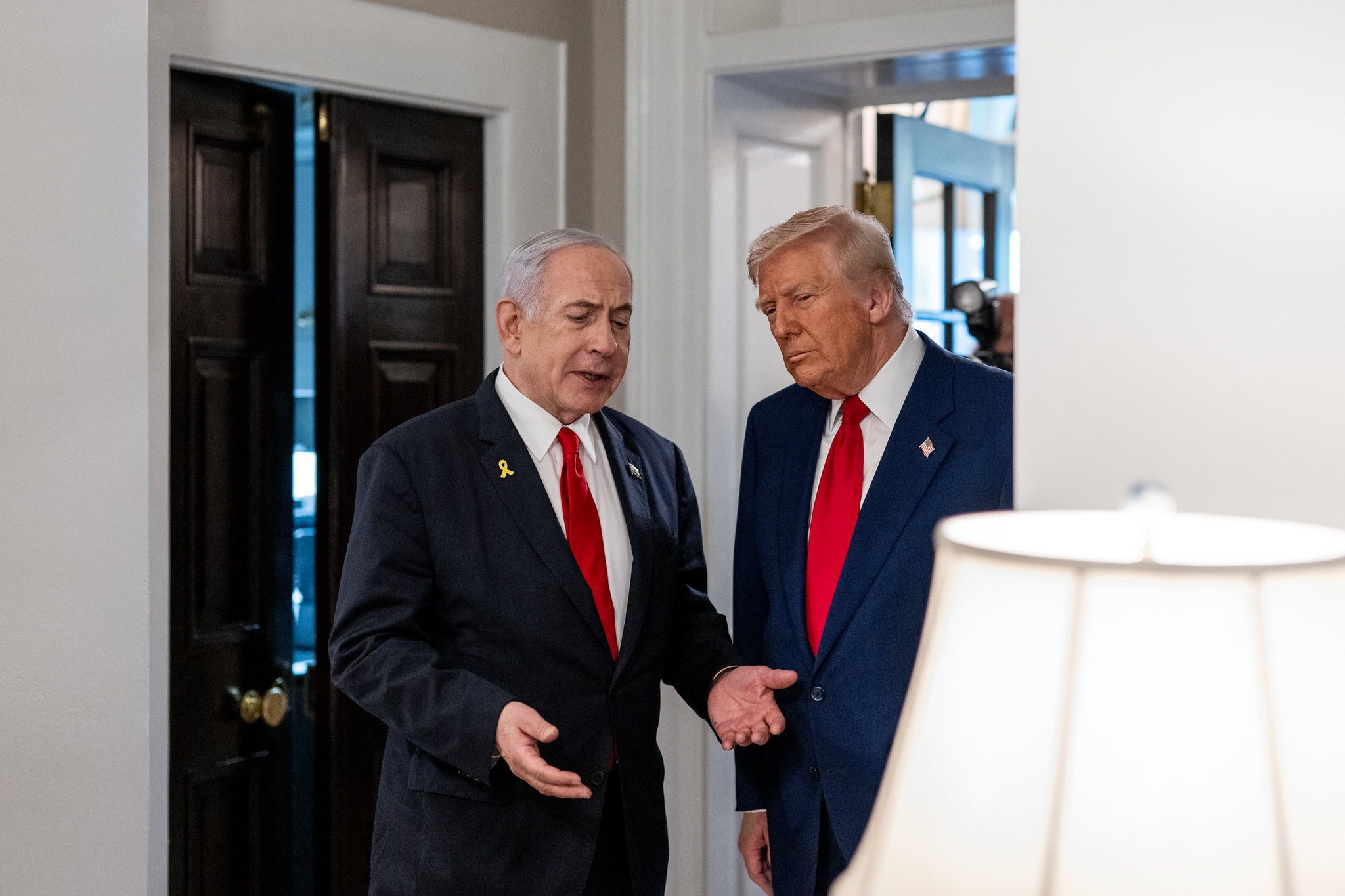Already a subscriber? Make sure to log into your account before viewing this content. You can access your account by hitting the “login” button on the top right corner. Still unable to see the content after signing in? Make sure your card on file is up-to-date.
President Donald Trump and Israeli Prime Minister Benjamin Netanyahu have held a phone call amid escalating tensions over Gaza’s humanitarian crisis.
Getting into it: According to a report by NBC News, the July 28 conversation quickly turned tense after Netanyahu repeated recent public statements denying that starvation exists in Gaza, suggesting that such reports were fabricated by Hamas. Trump reportedly interrupted Netanyahu when he was claiming that the hunger crisis was a Hamas invention, cutting in to insist that his aides had shown him photographs and other evidence of children in Gaza “looking very hungry” and suffering from “real starvation.”

This, according to US officials cited by NBC, was the point when the exchange escalated, with Trump raising his voice and rejecting any suggestion that the reports were false. The discussion, initially focused on the status of humanitarian aid, became what was described as a “direct, mostly one-way conversation” dominated by Trump.
Some Israeli news outlets echoed NBC’s portrayal of a heated call, though Netanyahu’s office flatly denied that any shouting match occurred, calling the report “complete fake news” and declining to comment on private conversations. The White House, for its part, avoided confirming the exchange, instead stating that President Trump remains focused on returning hostages and ensuring food reaches the people of Gaza.
This all comes as Israel faces mounting international pressure over its military operations in Gaza and the worsening humanitarian situation. In recent weeks, Israel’s plans to expand control over the remaining Hamas strongholds have drawn backlash from key allies, with countries such as Germany halting certain arms exports and others, including France, Australia, Canada, and the United Kingdom, signaling support for recognizing a Palestinian state.
Criticism has also grown in the US, where lawmakers from both parties have condemned the blockade’s impact on civilians and the reported shooting of Palestinians at food distribution sites.







